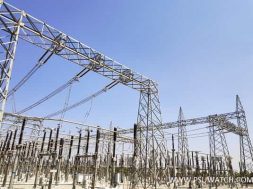
Smart solar-powered water desalination system connected in Kenya
GivePower, a non-profit organisation providing solar energy and clean, affordable water, has deployed a seawater desalination system at Likoni in Mombassa County in eastern Kenya.
Powered entirely by solar energy and battery storage, GivePower’s desalination systems are housed in 20-foot shipping containers and capable of transforming 70,000 litres of brackish and/or seawater into clean drinking water every day.
Unlike most ground well systems, these solar water ‘farms’ produce a higher quality of water over a longer period of time with virtually no negative environmental impact, states the organisation.
The water desalination system is powered by a small solar photovoltaic power plant installed on the container. The micro off-grid plant has a battery-based electricity storage system to enable the installation to provide drinking water after sunset or in bad weather.
In 2019, GivePower has installed a similar project in the coastal town of Kiunga, near the Kenya-Somalia border.
Smart tap used in water desalination plant
GivePower’s small desalination plant is designed to operate 24 hours a day with a SmartTap system facilitating the management of the decentralised drinking water supply systems.
It consists of a device that works with software to measure the quantity of water for each consumer.
The NPO believes its solution could help limit the spread of COVID-19 among the population. This is in response to the recommendation by the World Health Organisation for regular hand washing as one of the barrier measures against the pandemic.
GivePower adds: “Water-borne diseases are the leading cause of death on the planet and 2.1 billion people lack access to a reliable water source. While traditional solutions such as wells or rainwater harvesting may work for some, they are not a solution for people living in dry coastal areas due to the brackish nature of the groundwater and the lack of sufficient rainfall.”














